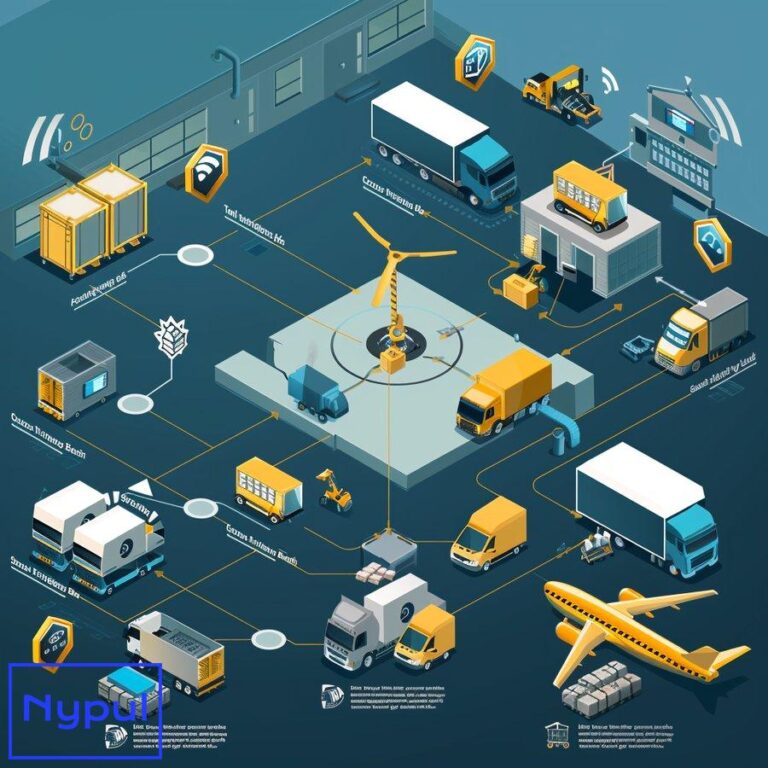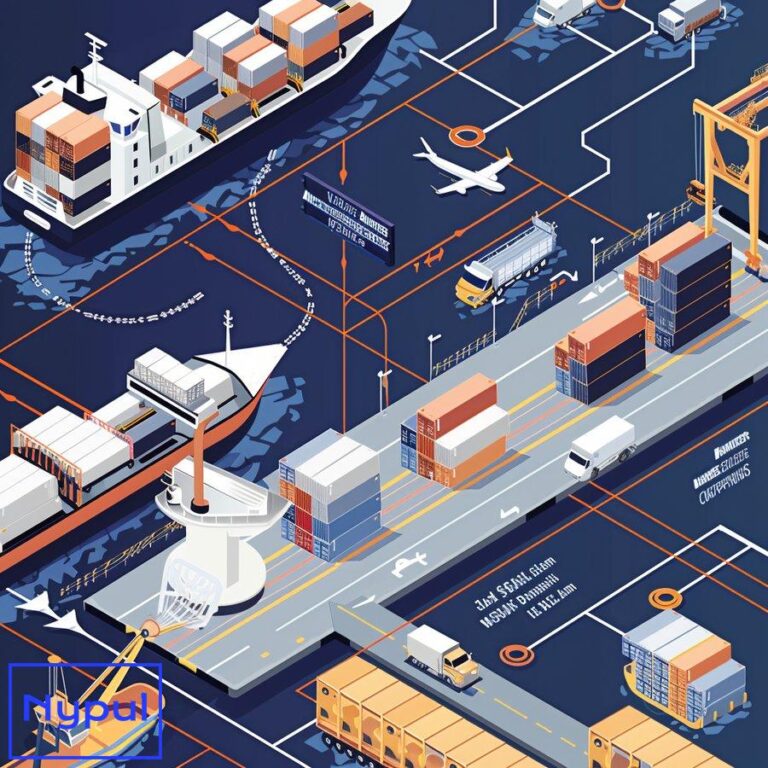What Is the Role of a Customs Broker
Who are customs brokers and what qualifications do they need?
Customs brokers play a crucial role in international trade, serving as intermediaries between importers/exporters and customs authorities. These licensed professionals possess specialized knowledge of customs regulations, tariffs, and international trade laws. Their expertise helps businesses navigate the complex world of cross-border commerce.
To become a customs broker in the United States, individuals must meet specific qualifications set by U.S. Customs and Border Protection (CBP):
Age and Citizenship
Applicants must be at least 21 years old and U.S. citizens.
Education and Examination
While a formal degree is not mandatory, candidates must pass the Customs Broker License Examination (CBLE). This rigorous test covers various aspects of customs regulations, tariff classifications, and trade laws.
Background Check
Applicants undergo a thorough background check to ensure good moral character.
Licensing
Upon passing the exam and background check, brokers receive a license from CBP.
Continuing Education
Licensed brokers must participate in ongoing education to stay current with changing regulations.
The qualifications for customs brokers may vary in other countries. For example:
| Country | Licensing Authority | Key Requirements |
|---|---|---|
| Canada | Canada Border Services Agency (CBSA) | Pass CBSA’s Customs Broker Entrance Exam, provide security deposit |
| United Kingdom | HM Revenue & Customs (HMRC) | No formal licensing, but must meet HMRC’s standards for customs agents |
| Australia | Department of Home Affairs | Complete Diploma of Customs Broking, pass National Customs Brokers Licensing Exam |
Customs brokers often specialize in specific industries or types of goods, developing deep expertise in areas such as:
Perishable Goods
Brokers handling food imports must understand FDA regulations and expedited clearance processes.
Hazardous Materials
Expertise in safety regulations and special handling requirements for dangerous goods.
Textiles and Apparel
Knowledge of quota systems, country of origin rules, and labeling requirements.
Technology Products
Familiarity with encryption export controls and intellectual property regulations.
The role of customs brokers extends beyond mere paperwork processing. They serve as trusted advisors, helping businesses comply with complex regulations while optimizing their supply chains. Their qualifications and expertise make them invaluable partners in facilitating smooth international trade operations.
What are the primary responsibilities of a customs broker?

Customs brokers shoulder a wide range of responsibilities, all aimed at ensuring the smooth flow of goods across international borders while maintaining compliance with relevant laws and regulations. Their primary duties encompass several key areas:
Customs Clearance
The core responsibility of customs brokers involves facilitating the clearance of goods through customs. This process includes:
- Preparing and submitting necessary documentation
- Calculating and paying applicable duties and taxes
- Coordinating with customs officials to resolve any issues or discrepancies
Classification of Goods
Accurate classification of imported or exported items is crucial for determining the correct duties and taxes. Customs brokers:
- Analyze product specifications and documentation
- Assign appropriate Harmonized System (HS) codes
- Ensure compliance with country-specific classification requirements
Valuation
Determining the correct customs value of goods is essential for duty calculation. Customs brokers:
- Review commercial invoices and related documents
- Apply appropriate valuation methods as per customs regulations
- Advise clients on proper declaration of transaction value
Compliance Management
Customs brokers play a vital role in ensuring their clients adhere to all relevant trade laws and regulations:
- Keeping abreast of changes in customs regulations and trade agreements
- Advising clients on compliance requirements
- Assisting with audits and investigations when necessary
Documentation Management
Proper documentation is critical in international trade. Customs brokers:
- Prepare and review all required customs documents
- Ensure accuracy and completeness of information
- Maintain records as required by customs authorities
Risk Assessment and Mitigation
Customs brokers help identify and mitigate potential risks in the import/export process:
- Analyzing shipments for potential red flags
- Advising on strategies to minimize delays or penalties
- Coordinating with relevant agencies for special permits or licenses
Client Representation
Customs brokers act as intermediaries between their clients and customs authorities:
- Communicating with customs officials on behalf of clients
- Resolving issues or disputes that may arise during clearance
- Providing expert advice on complex customs matters
Trade Consulting
Beyond day-to-day operations, customs brokers often provide strategic advice to their clients:
- Analyzing supply chains for efficiency and compliance
- Recommending strategies for duty savings or trade facilitation programs
- Assisting with long-term trade planning and forecasting
The responsibilities of customs brokers can vary depending on the specific needs of their clients and the nature of the goods being traded. Here’s a comparison of how these responsibilities might differ across various industries:
| Industry | Specific Responsibilities |
|---|---|
| Automotive | Managing complex supply chains, dealing with rules of origin for free trade agreements |
| Pharmaceuticals | Ensuring compliance with strict regulatory requirements, handling temperature-sensitive shipments |
| Fashion/Apparel | Navigating quota systems, managing seasonal imports, dealing with intellectual property issues |
| Electronics | Handling high-value shipments, managing export controls for sensitive technologies |
| Food and Beverage | Coordinating with food safety agencies, managing perishable goods clearance |
Customs brokers must maintain a delicate balance between facilitating trade and ensuring compliance. Their responsibilities require a combination of technical knowledge, attention to detail, and strong communication skills. By effectively managing these diverse tasks, customs brokers play a crucial role in keeping international trade flowing smoothly and efficiently.
How do customs brokers facilitate import and export processes?
Customs brokers serve as essential facilitators in the complex world of international trade, streamlining import and export processes for businesses of all sizes. Their expertise and knowledge of customs procedures help expedite shipments, reduce costs, and ensure compliance with ever-changing regulations.

Pre-Shipment Planning
Before goods even leave their point of origin, customs brokers begin their work:
- Reviewing product specifications and documentation
- Advising on proper packaging and labeling requirements
- Determining necessary permits or licenses
- Providing guidance on potential trade restrictions or embargoes
Documentation Preparation
Accurate and complete documentation is crucial for smooth customs clearance. Customs brokers:
- Prepare customs declarations and entry forms
- Compile and review commercial invoices, packing lists, and certificates of origin
- Ensure all documents meet the specific requirements of both origin and destination countries
Customs Valuation
Determining the correct customs value of goods is a critical step in the import process:
- Analyzing transaction value and applying appropriate valuation methods
- Identifying and declaring any additions to the price paid or payable
- Advising clients on proper declaration of related party transactions
Tariff Classification
Assigning the correct tariff classification is essential for determining applicable duties and taxes:
- Researching and applying appropriate Harmonized System (HS) codes
- Staying updated on changes to tariff schedules
- Advising clients on potential classification disputes
Duty and Tax Calculation
Customs brokers ensure accurate calculation and timely payment of all applicable duties and taxes:
- Determining eligibility for preferential duty rates under trade agreements
- Identifying potential duty exemptions or reductions
- Managing duty deferral programs and bonded warehouses
Customs Clearance Coordination
The actual process of clearing goods through customs requires careful coordination:
- Submitting customs entries electronically
- Liaising with customs officials to address any questions or concerns
- Arranging for physical inspections when required
- Resolving any discrepancies or issues that may arise during clearance
Post-Entry Management
Customs brokers’ responsibilities extend beyond the initial clearance of goods:
- Managing post-entry adjustments and reconciliations
- Assisting with customs audits and verifications
- Handling duty refund claims and protests
Trade Compliance Programs
Many customs brokers help their clients implement comprehensive trade compliance programs:
- Developing internal policies and procedures
- Conducting compliance audits and risk assessments
- Providing staff training on customs regulations and best practices
The impact of customs brokers on import and export processes can be significant. Here’s a comparison of key metrics with and without the assistance of a customs broker:
| Metric | Without Customs Broker | With Customs Broker |
|---|---|---|
| Average Clearance Time | 3-5 days | 1-2 days |
| Documentation Errors | 15-20% | 2-5% |
| Duty Overpayments | 8-12% | 1-3% |
| Compliance Issues | Frequent | Rare |
| Supply Chain Visibility | Limited | Enhanced |
Technology Integration
Modern customs brokers leverage advanced technologies to enhance their services:
- Utilizing electronic data interchange (EDI) for faster communication with customs authorities
- Implementing blockchain solutions for improved traceability and security
- Employing artificial intelligence and machine learning for risk assessment and classification
Global Trade Management
For businesses engaged in complex international trade, customs brokers often provide comprehensive global trade management services:
- Coordinating multi-country shipments
- Managing free trade agreement compliance
- Optimizing global supply chains for duty and tax efficiency
Regulatory Advocacy
Experienced customs brokers often serve as advocates for their clients in regulatory matters:
- Representing importers and exporters in customs rulings and appeals
- Participating in industry associations to influence trade policy
- Providing input on proposed regulatory changes
By facilitating these various aspects of the import and export process, customs brokers play a crucial role in keeping international trade flowing smoothly. Their expertise helps businesses navigate the complexities of global commerce, reduce risks, and capitalize on opportunities in the ever-evolving world of international trade.
What specific services do customs brokers provide?
Customs brokers offer a wide range of specialized services designed to facilitate international trade and ensure compliance with customs regulations. These services cater to the diverse needs of importers, exporters, and businesses engaged in cross-border commerce.
Entry Processing
The core service provided by customs brokers involves preparing and submitting customs entries:
- Reviewing commercial documents for accuracy and completeness
- Determining the correct tariff classification for imported goods
- Calculating applicable duties, taxes, and fees
- Submitting electronic entries to customs authorities
- Coordinating the release of goods from customs control
Customs Valuation
Accurate valuation of imported goods is crucial for duty assessment:
- Analyzing transaction value and supporting documentation
- Identifying and declaring additions to the price paid or payable
- Advising on complex valuation issues such as related party transactions
- Preparing reconciliations for provisional value entries
Duty Drawback
Many customs brokers specialize in duty drawback services:
- Identifying eligible drawback opportunities
- Preparing and submitting drawback claims
- Managing record-keeping requirements for drawback
- Representing clients in drawback audits and verifications
Free Trade Agreement (FTA) Management
Customs brokers help businesses leverage FTAs for duty savings:
- Determining product eligibility for preferential tariff treatment
- Preparing and verifying certificates of origin
- Managing FTA compliance programs
- Conducting origin verifications and responding to customs inquiries
Regulatory Compliance
Ensuring adherence to customs and trade regulations is a key service:
- Developing and implementing compliance programs
- Conducting internal audits and risk assessments
- Providing training on customs regulations and procedures
- Assisting with voluntary disclosures and prior disclosures
Special Programs and Permits
Customs brokers navigate complex regulatory requirements for special trade programs:
- Managing bonded warehouse operations
- Coordinating foreign trade zone (FTZ) entries and exits
- Obtaining carnets for temporary imports/exports
- Securing special permits for restricted or controlled goods
Consulting Services
Many customs brokers offer strategic consulting to optimize trade operations:
- Supply chain analysis and optimization
- Trade data analytics and reporting
- Merger and acquisition due diligence for customs issues
- Customs valuation and transfer pricing alignment
Technology Solutions
Modern customs brokers provide technology-driven services:
- Implementing electronic data interchange (EDI) systems
- Offering web-based portals for shipment tracking and document management
- Integrating customs compliance software with client ERP systems
- Providing data analytics and reporting tools
The specific services offered by customs brokers can vary based on their specialization and the needs of their clients. Here’s a comparison of services typically provided for different types of businesses:
| Business Type | Key Services |
|---|---|
| Small Importer | Basic entry processing, classification assistance, compliance guidance |
| Large Multinational | Global trade management, FTA optimization, duty planning strategies |
| E-commerce Retailer | High-volume entry processing, de minimis shipment management, returns handling |
| Manufacturer | Duty drawback, FTZ operations, supply chain optimization |
| Chemical/Pharma Company | Dangerous goods compliance, FDA coordination, specialized permits |
Post-Entry Services
Customs brokers continue to provide valuable services after goods have cleared customs:
- Managing post-entry amendments and corrections
- Assisting with customs audits and focused assessments
- Handling protests and appeals of customs decisions
- Conducting post-entry reviews for compliance and duty savings opportunities
Trade Security Programs
Many customs brokers help clients participate in trade security initiatives:
- Assisting with Customs-Trade Partnership Against Terrorism (C-TPAT) certification
- Managing Authorized Economic Operator (AEO) programs
- Implementing security measures in international supply chains
- Coordinating with government agencies on security-related matters
Specialized Industry Services
Customs brokers often develop expertise in specific industries:
- Textile and apparel: Managing quota restrictions, ensuring proper labeling
- Automotive: Handling USMCA compliance, managing just-in-time inventory
- Food and beverage: Coordinating FDA inspections, managing perishable goods
- Defense and aerospace: Navigating ITAR regulations, handling controlled technologies
Global Trade Advisory
Experienced customs brokers provide strategic advice on global trade matters:
- Analyzing the impact of trade agreements and policy changes
- Advising on tariff engineering and duty mitigation strategies
- Assisting with trade remedy cases (antidumping, countervailing duties)
- Providing expert testimony in trade-related legal proceedings
By offering this comprehensive range of services, customs brokers position themselves as indispensable partners in international trade. Their expertise helps businesses navigate the complexities of global commerce, minimize risks, and capitalize on opportunities in an ever-changing regulatory landscape.
Why should businesses consider using a customs broker?
Businesses engaged in international trade face a complex and ever-changing landscape of regulations, tariffs, and procedures. Engaging the services of a customs broker can provide numerous benefits, helping companies navigate these challenges efficiently and effectively.
Expertise and Specialization
Customs brokers possess in-depth knowledge of customs regulations and procedures:
- Staying updated on frequent changes in trade laws and policies
- Specializing in specific industries or types of goods
- Providing expert guidance on complex customs matters
Time and Resource Savings
Outsourcing customs-related tasks to a broker allows businesses to focus on their core competencies:
- Reducing the need for in-house customs expertise
- Streamlining the customs clearance process
- Minimizing delays and disruptions in the supply chain
Compliance Assurance
Customs brokers help businesses maintain compliance with customs regulations:
- Ensuring accurate classification and valuation of goods
- Managing documentation requirements
- Reducing the risk of penalties and fines for non-compliance
Cost Reduction
While there is a fee for customs brokerage services, they can lead to overall cost savings:
- Identifying opportunities for duty savings and exemptions
- Minimizing storage and demurrage charges through efficient clearance
- Avoiding costly errors and penalties
Risk Mitigation
Customs brokers help businesses navigate potential risks in international trade:
- Conducting pre-shipment reviews to identify potential issues
- Advising on trade restrictions and embargoes
- Assisting with trade security programs like C-TPAT
Enhanced Efficiency
Professional customs brokers streamline the import/export process:
- Utilizing advanced technology for faster processing
- Maintaining strong relationships with customs authorities
- Providing real-time tracking and visibility of shipments
Strategic Advantage
Customs brokers can provide valuable insights for business strategy:
- Analyzing trade data for market trends and opportunities
- Advising on the impact of trade agreements and policy changes
- Assisting with long-term trade planning and forecasting
The value of using a customs broker can be quantified in various ways. Here’s a comparison of key metrics for businesses with and without customs broker services:
| Metric | Without Customs Broker | With Customs Broker |
|---|---|---|
| Average Clearance Time | 5-7 days | 1-3 days |
| Compliance Rate | 80-85% | 95-99% |
| Duty Savings Opportunities Identified | 10-15% | 25-30% |
| Supply Chain## How do customs brokers work with customs authorities? |
Customs brokers serve as the critical link between businesses engaged in international trade and the customs authorities responsible for regulating the flow of goods across borders. This collaborative relationship is essential for ensuring compliance, facilitating efficient clearance, and maintaining the integrity of the global supply chain.
Licensing and Registration
Customs brokers must be licensed or registered with the relevant customs authorities in order to conduct business on behalf of their clients. This process typically involves:
- Passing a customs broker exam
- Undergoing a background check
- Providing a surety bond or other financial guarantee
- Maintaining continuing education requirements
Electronic Data Interchange (EDI)
Modern customs brokers utilize electronic data interchange systems to communicate with customs authorities:
- Submitting customs entries and supporting documents electronically
- Receiving electronic responses and notifications from customs
- Tracking the status of shipments in real-time
Relationship Management
Experienced customs brokers develop strong working relationships with customs officials:
- Participating in industry associations and advisory committees
- Attending trade conferences and training sessions
- Engaging in regular communication to address issues and concerns
Compliance Audits and Inspections
Customs brokers assist their clients in preparing for and responding to customs audits and inspections:
- Conducting internal compliance reviews
- Providing documentation and records as requested by customs
- Representing clients in meetings with customs officials
- Responding to any findings or assessments resulting from audits
Dispute Resolution
When disagreements or disputes arise between importers/exporters and customs authorities, customs brokers play a crucial role in facilitating resolution:
- Interpreting customs regulations and rulings
- Preparing protests and appeals on behalf of clients
- Negotiating with customs officials to reach mutually acceptable outcomes
- Representing clients in administrative or judicial proceedings
Regulatory Advocacy
Many customs brokers actively participate in shaping customs regulations and policies:
- Providing input during public comment periods for proposed rules
- Testifying at congressional hearings on trade-related issues
- Serving on advisory committees and working groups
- Collaborating with industry associations to advocate for the interests of importers and exporters
By maintaining strong working relationships with customs authorities, customs brokers help ensure that international trade flows smoothly and efficiently. Their expertise and communication skills are invaluable in navigating the complex web of customs regulations and procedures.
What technologies do customs brokers use in their work?

Customs brokers leverage a variety of technologies to streamline their operations, enhance compliance, and provide value-added services to their clients. These technological solutions play a crucial role in facilitating international trade in the digital age.
Electronic Data Interchange (EDI)
EDI is the backbone of customs broker technology, enabling the electronic exchange of data with customs authorities and other trade partners:
- Submitting customs entries and supporting documents
- Receiving electronic responses and notifications
- Tracking shipment status in real-time
Customs Compliance Software
Specialized software helps customs brokers manage the complexities of customs compliance:
- Maintaining up-to-date tariff and trade agreement data
- Automating classification and valuation calculations
- Generating customs entries and reports
- Providing audit trails and record-keeping capabilities
Web-based Portals
Many customs brokers offer web-based portals for their clients to access shipment information and manage customs-related tasks:
- Tracking shipment status and clearance progress
- Accessing customs documents and reports
- Initiating requests for services or information
- Collaborating with brokers on compliance matters
Data Analytics and Reporting
Customs brokers utilize data analytics tools to generate valuable insights for their clients:
- Analyzing trade data to identify trends and opportunities
- Providing customized reports on duty savings, compliance metrics, and supply chain performance
- Benchmarking client performance against industry standards
Blockchain Technology
Some customs brokers are exploring the use of blockchain to enhance supply chain visibility and security:
- Tracking goods across multiple parties and jurisdictions
- Verifying the authenticity and origin of products
- Automating customs clearance processes through smart contracts
- Improving the traceability of shipments for compliance purposes
Artificial Intelligence and Machine Learning
Advanced technologies like AI and ML are being applied to various aspects of customs brokerage:
- Automating the classification of goods based on product descriptions
- Identifying potential compliance risks in shipments
- Optimizing routing and mode selection for efficient delivery
- Providing chatbot-based customer support and information retrieval
Mobile Applications
Customs brokers are increasingly leveraging mobile technologies to enhance their services:
- Providing real-time updates and alerts on shipment status
- Enabling remote access to customs documents and reports
- Facilitating communication and collaboration with clients and trade partners
- Streamlining the process of gathering information and signatures for customs documents
These technologies enable customs brokers to operate more efficiently, make better-informed decisions, and provide higher-quality services to their clients. As the world of international trade continues to evolve, customs brokers will need to stay at the forefront of technological innovation to remain competitive and add value to their clients’ supply chains.
How can businesses choose the right customs broker?

Selecting the right customs broker is a critical decision for businesses engaged in international trade. The right partner can help streamline operations, ensure compliance, and provide valuable strategic insights. However, with so many options available, it can be challenging to find the perfect fit. Here are some key factors to consider when choosing a customs broker:
Licensing and Credentials
Ensure that the customs broker is properly licensed and registered with the relevant customs authorities:
- Verify that the broker holds a valid customs broker license
- Check if the broker is a member of any professional associations or trade groups
- Inquire about the broker’s experience and track record in the industry
Specialization and Industry Knowledge
Look for a customs broker with expertise in your specific industry or product category:
- Determine if the broker has experience handling goods similar to yours
- Ask about their knowledge of industry-specific regulations and requirements
- Assess their ability to provide guidance on trade agreements and tariff classifications relevant to your business
Geographic Coverage
Consider a customs broker with a global presence or strong partnerships in your key markets:
- Ensure that the broker has the capability to handle shipments to and from your primary trade lanes
- Inquire about their network of agents and partners in foreign countries
- Assess their ability to coordinate multi-country shipments and manage cross-border compliance
Technology and Innovation
Evaluate the customs broker’s technological capabilities and commitment to innovation:
- Determine if they utilize advanced technologies like EDI, web portals, and data analytics
- Assess their ability to integrate with your existing systems and processes
- Inquire about their plans for future technological investments and upgrades
Compliance and Risk Management
Look for a customs broker with a strong track record of compliance and risk mitigation:
- Assess their understanding of customs regulations and procedures
- Determine their approach to identifying and addressing compliance risks
- Inquire about their experience in handling audits, penalties, and disputes with customs authorities
Customer Service and Communication
Evaluate the customs broker’s commitment to customer service and communication:
- Assess their responsiveness to inquiries and requests
- Determine if they provide dedicated account management and support
- Inquire about their communication protocols and escalation procedures
Financial Stability and Insurance
Consider the financial stability and insurance coverage of the customs broker:
- Verify that the broker is financially sound and has adequate resources to handle your business
- Ensure that they maintain appropriate insurance coverage, such as errors and omissions insurance
- Inquire about their bonding capacity and ability to secure duty deferment or drawback
References and Testimonials
Request references and testimonials from the customs broker’s existing clients:
- Inquire about their satisfaction with the broker’s services and performance
- Assess the broker’s ability to meet deadlines, resolve issues, and provide value-added services
- Determine if the broker has any experience working with businesses similar to yours
By carefully evaluating these factors, businesses can identify a customs broker that aligns with their specific needs, priorities, and goals. A strong partnership with a reputable and capable customs broker can be a valuable asset in navigating the complexities of international trade and achieving success in the global marketplace.



